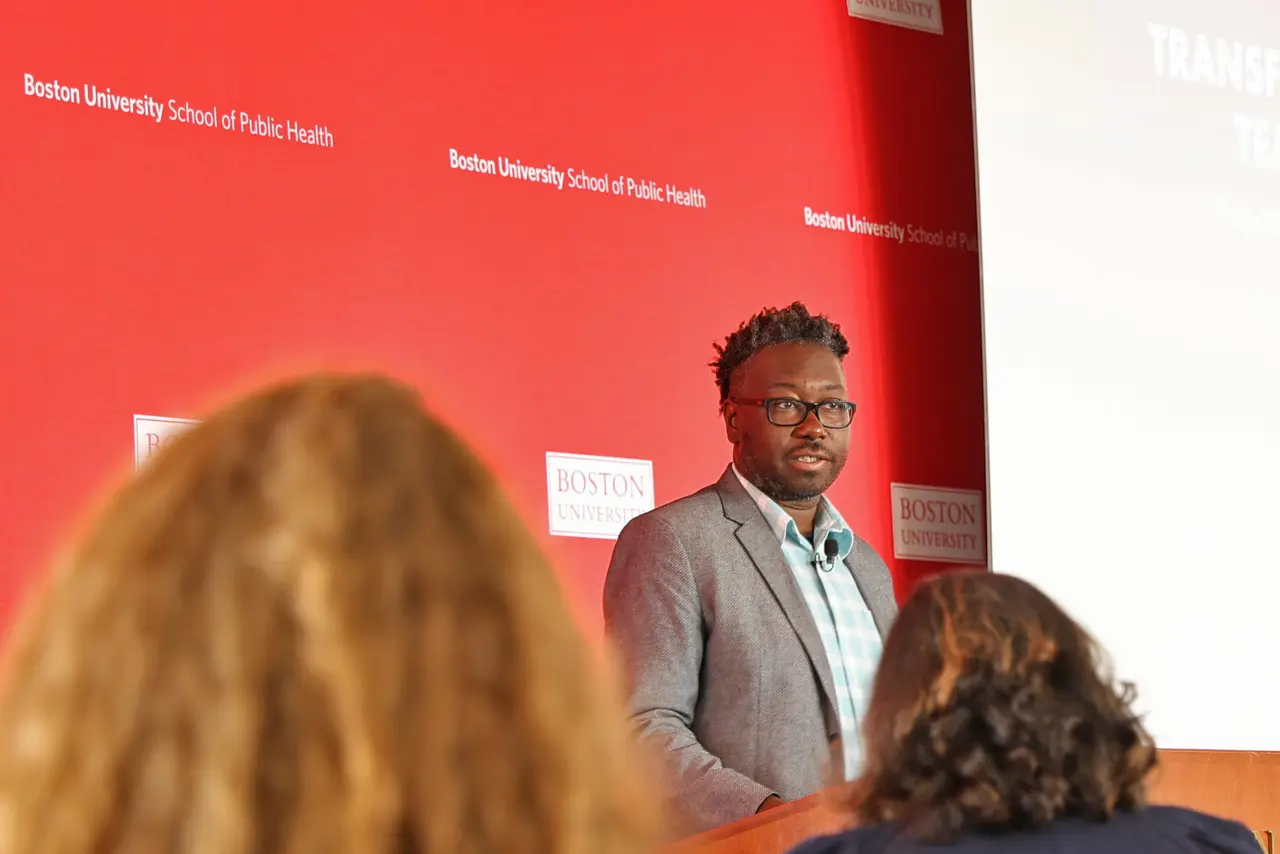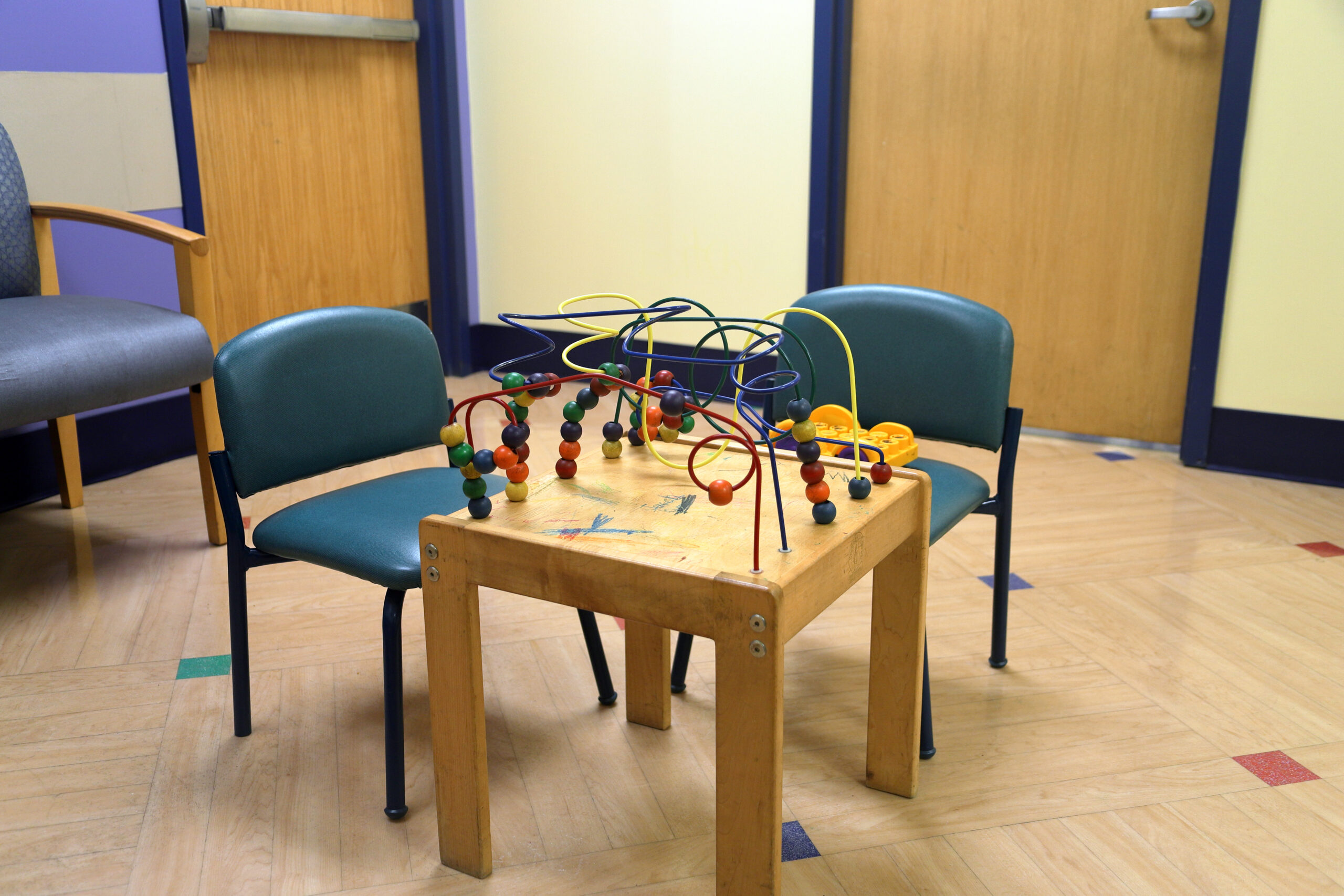Videos
Speakers

Hallie Prescott
Associate Professor, University of Michigan
Dr. Hallie Prescott is a member of the Division of Pulmonary and Critical Care Medicine. She graduated from Middlebury College with a B.A. in Molecular Biology. She completed medical school and Internal Medicine residency training at The Ohio State University, where she also served as chief medical resident. In 2011, she was recruited to University of Michigan for Pulmonary & Critical Care Medicine fellowship. In 2014, Hallie completed her fellowship training and graduated with a Master’s of Science in Health & Healthcare Research.
Hallie conducts health services research to understand and improve the long-term outcomes of acute medical illnesses. Her initial focus is reducing the need for repeated hospitalization after severe sepsis. She has found that the rate of hospitalization following severe sepsis exceeds patients’ baseline rate of hospitalization as well as that of carefully matched controls. Furthermore, in more recent work published in JAMA, Hallie has found that 42% of hospitalizations in the 90 days after sepsis occur for potentially preventable conditions—recurrent sepsis, less severe infection, heart failure, etc.
In addition to her research in Medicare beneficiaries, Hallie has also partnered with investigators at Kaiser Permanente to examine hospital readmissions and healthcare utilization of sepsis survivors within Kaiser’s integrated healthcare delivery system. After accounting for the differences in age between the Medicare and Kaiser cohorts, the findings were remarkably similar between these cohorts. The consistent findings across studies demonstrates the pervasiveness of re-hospitalization and new morbidity after sepsis.
While much of the current research on re-hospitalization focuses whether or not readmission penalties are “fair” to hospitals, Hallie’s work focuses on how to improve outcomes for patients.
Hallie’s work draws on the tools of health services research, “big data” analytics, and implementation science. Her K08 will build the foundation for future translational research to uncover the biologic mechanisms of long-term morbidity post-sepsis and for future clinical interventions to improve the recovery and reduce healthcare utilization of severe sepsis survivors.

Gabriel Leung
Dean of Medicine, University of Hong Kong
Gabriel Leung is the fortieth Dean of Medicine (2013-), inaugural Helen and Francis Zimmern Professor in Population Health and holds the Chair of Public Health Medicine at the University of Hong Kong (HKU). He was the last Head of Community Medicine (2012-3) at the University as well as Hong Kong’s first Under Secretary for Food and Health (2008-11) and fifth Director of the Chief Executive’s Office (2011-2) in government.
He is an elected member of the US National Academy of Medicine and was awarded the Gold Bauhinia Star (second highest civilian honour) by the Hong Kong government for distinguished service in protecting and promoting population health.
A specialist in public health medicine, Leung’s interdisciplinary work revolves around topics that have major population health impact locally, where Hong Kong is a reliable and unique epidemiologic sentinel for mainland China and the Chinese diaspora, or where the SAR is best placed to address the fundamental science at hand globally.
Leung is one of Asia’s leading epidemiologists and global health exponents, having authored more than 500 scholarly papers with an h-index of 65 (Scopus). His research defined the epidemiology of three novel viral epidemics, namely SARS in 2003, influenza A(H7N9) in 2013 and most recently COVID-19. He led Hong Kong government’s efforts against pandemic A(H1N1) in 2009. He was founding co-director of HKU’s World Health Organization (WHO) Collaborating Centre for Infectious Disease Epidemiology and Control (2014-8) and currently directs the Laboratory of Data Discovery for Health at the Hong Kong Science and Technology Park (2020-).
In parallel, Leung leads several large-scale longitudinal cohorts (Children of 1997, FAMILY, Department of Health Elderly Health Service cohort), tracking tens of thousands of lives to study the fundamental causes of non-communicable conditions and to explain the health impacts of contemporary social phenomena.
A final strand of his work concerns the economics and policy issues of health systems. His team is the government’s health accountant and projects health care human resources needs. Regionally, Leung has tirelessly worked to build capacity throughout the Asia Pacific. He served as founding Chair of the Asia Pacific Observatory on Health Systems Policies (2010-14) and continues to lead its Strategic Technical Advisory Committee (2018-).
Leung regularly advises national and international agencies including the World Health Organisation, World Bank, Asian Development Bank, Boao Forum for Asia, Institut Pasteur, Japan Center for International Exchange and China Centers for Disease Control and Prevention. He is an Adjunct Professor of Peking Union Medical College Hospital and Adjunct Professorial Researcher of the China National Health Development Research Center.
Locally, he was Vice President and Censor in Public Health Medicine of the Hong Kong College of Community Medicine (2006-8), and an elected council member of the Hong Kong Academy of Medicine (2012-9). He is a member of the Hospital Authority (2013-) and completed two terms on the University Grants Committee (2014-9), which are respectively a statutory agency responsible for all public health care services and a government advisory body on the development and funding requirements of the higher education sector.
He edited the Journal of Public Health (2007-14), was inaugural co-editor of Epidemics, associate editor of Health Policy and is founding deputy editor-in-chief of China CDC Weekly. He currently serves on the editorial boards of seven journals, including the British Medical Journal.
After reading medicine at the University of Western Ontario, he completed family medicine residency training in Toronto. He earned a master’s from Harvard University and research doctorate from HKU.

Gabriela Gomes
Professor, University of Strathclyde Glasgow
I have 30 years of research experience in nonlinear dynamics. With initial interests in the abstraction of symmetries governing pattern formation in natural and experimental systems, in the last 20 years my research activity has primarily involved mathematical modelling of infectious disease dynamics and epidemiology. Over the last 10 years, I became increasingly appreciative of the need to build and promote new infectious disease epidemiology theory to account for individual variation in characteristics that are under selection, especially when selection forces are dynamic. These characteristics may not be heritable, in which case selection affects each generation while being invisible to current evolutionary theory, which to some extent also needs to be re-examined. More generally, whether we refer to populations of humans, animals, microbes, or cells, the idea that in every observational or experimental study there is always a degree of unobserved heterogeneity that can reverse the direction of our conclusions is unsettling, but the issue can be tackled by general mathematical formalisms that account for it combined with study designs that enable its estimation.
Ten years ago, I encountered a concept that transformed the way I think about populations. The idea of frailty variation was introduced in demography 40 years ago to describe variation in individual longevity. As the frailest individuals are removed earlier from a heterogeneous cohort, death rates decline over time creating an impression that individual longevity is increasing even when it is not. This is the simplest realisation of a phenomenon that has manifold manifestations in any study that involves counting the individuals that constitute a population over time, across environments or experimental conditions. It appears to explain a wide range of reported discrepancies between studies and contribute to resolve decade-long debates, such as why vaccines appear less efficacious where disease burdens are high, why mathematical models tend to overpredict the impact of disease control measures and whether niche mechanisms need to be invoked to explain the levels of biodiversity observed in nature. I have reformulated these and other problems and have been privileged to collaborate with colleagues around the world.

Caitlin Rivers
Assistant Professor, Johns Hopkins Bloomberg School of Public Health
Dr. Rivers is a Senior Scholar at the Johns Hopkins Center for Health Security and an Assistant Professor in the Department of Environmental Health and Engineering at the Johns Hopkins Bloomberg School of Public Health. Her research focuses on improving public health preparedness and response, particularly by improving capabilities for “outbreak science” and infectious disease modeling to support public health decision making.
Dr. Rivers participated as author or contributor in influential reports that are guiding the US response to COVID-19, including National Coronavirus Response: A Roadmap to Reopening; A National COVID-19 Surveillance System: Achieving Containment; Filling in the Blanks: National Research Needs to Guide Decisions about Reopening Schools in the United States; and A National Plan to Enable Comprehensive COVID-19 Case Finding and Contact Tracing in the US. She is the lead author on the report Public Health Principles for a Phased Reopening During COVID-19: Guidance for Governors which is being used by, the National Governors Association, the state of Maryland, and the District of Columbia to guide reopening plans. In May 2020, Dr. Rivers testified in front of the House Appropriations Subcommittee on Labor, Health and Human Services, Education and Related Agencies on the COVID-19 Response.
Prior to joining the Center for Health Security in 2017, Dr. Rivers worked as an epidemiologist for the United States Army Public Health Center as a Department of Defense SMART Scholar. She also participated in a National Science and Technology Council’s Pandemic Prediction and Forecasting Science and Technology working group. Dr. Rivers serves as an Associate Editor of the journal Health Security.

David Hamer
Professor of Global Health and Medicine, Boston University
Davidson Hamer, MD, FACP, FIDSA, FASTMH, FISTM is a Professor of Global Health and Medicine at the Boston University School of Public Health and School of Medicine, and Adjunct Professor of Nutrition at the Tufts University Friedman School of Nutrition Science and Policy. Dr. Hamer, a board-certified specialist in infectious diseases with a particular interest in tropical infectious diseases, has extensive field experience in neonatal and child survival research including studies of micronutrient interventions, maternal and neonatal health, malaria, pneumonia, and diarrheal diseases. During the last 20+ years, he has supervised and provided technical support to more than 50 studies in developing countries that evaluated interventions for improving neonatal survival, improving access for pregnant women to emergency obstetrical care, treatment and prevention of malaria, HIV/AIDS, micronutrient deficiencies, diarrheal disease, and pneumonia. Dr. Hamer received a MD from the University of Vermont College of Medicine and a BA in biology and French from Amherst College. He is a Fellow of the American College of Physicians, Infectious Diseases Society of America, American Society of Tropical Medicine and Hygiene, and the International Society of Travel Medicine. Dr. Hamer currently has active projects in Bangladesh, Zambia, South Africa, and the United States. Major current projects include neonatal sepsis prevention using prebiotics and probiotics in Bangladesh; using community health workers to improve early childhood development in rural South Africa, antiretroviral adherence among congenitally infected HIV-positive children in Lusaka, Zambia; and a scaled-up evaluation of community-based mothers’ groups for improving early child development in rural Zambia. In addition, Dr. Hamer is the PI for the GeoSentinel Surveillance Network, a global network of 70 sites in 31 countries that conducts surveillance of emerging infectious diseases using returning travelers, immigrants, and refugees as sentinels of infection (www.istm.org/geosentinel).

Subscribe to PHC
Get the latest from Boston University School of Public Health



